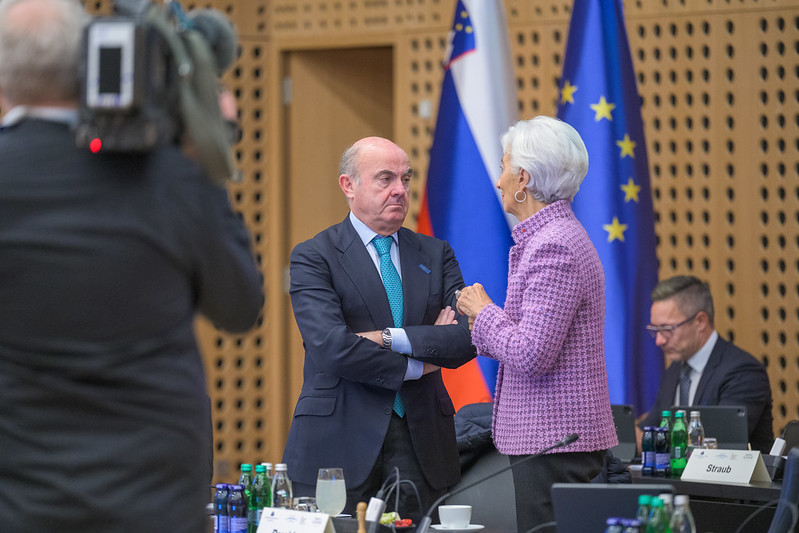ECB’s de Guindos: CPI Data in Line With Our Expectations, Data Are Positive
29 November 2024

By Marta Vilar – S’AGARÓ, SPAIN (Econostream) – European Central Bank Vice President Luis de Guindos said on Friday that the latest Eurozone CPI data were positive and consistent with the ECB’s projections.
In a speech at the Encuentro de Economía organised by Fundación Olof Palme in S’Agaró, Spain, de Guindos said that the preliminary inflation reading for November was ‘in line with expectations’ and that ‘this slight increase was expected by our projections; data are positive’.
Uncertainty remained concerning services inflation, which was nonetheless still expected to slow in 2025, he said.
Economic growth would ‘clearly be below 1% this year’, but a mild recovery was expected in 2026 with potential growth of around 1%, he said.
‘The reason [behind this weakness] is related to two basic elements we had previously projected to be the engines [of economic growth]: investment and consumption, which are flat’, he said.
The ECB had increasing confidence about the convergence of inflation towards the 2% target, according to de Guindos, who nevertheless reiterated that uncertainty was very high.
‘We will focus on a prudent approach, meeting-by-meeting. The Governing Council will will adjust [monetary policy] depending on the data and the international context’, he said.
Restrictiveness of monetary policy would continue to be reduced, he said.
The implementation of the first potential tariff hikes by the Trump administration would not be as concerning as the response of the countries affected, he said.
‘This reaction could drive to a vicious cycle and ultimately could generate a trade war, which would be extremely negative for global economic growth’, he said.
The decline of the euro versus the US dollar ‘could have started to compensate a potential increase of tariffs that the American administration could apply to European products’, de Guindos said.
Related articles:
